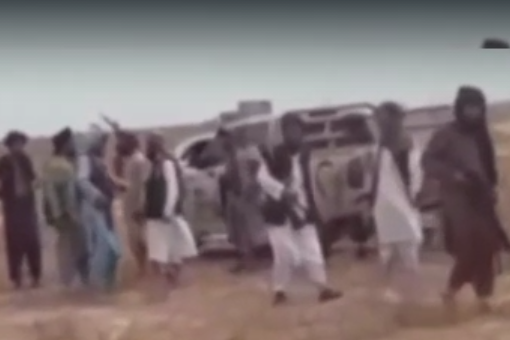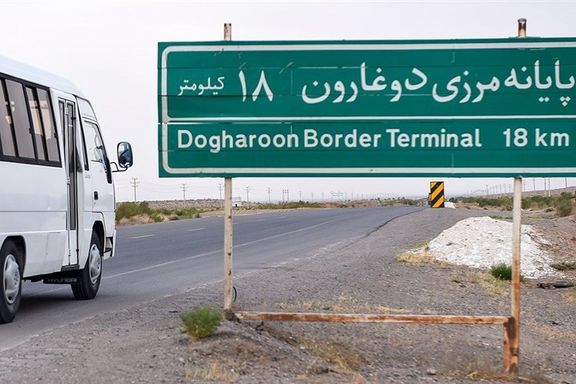Iran Says Taliban's 'Uncoordinated' Road Work Caused Border Tension

Tehran says the Taliban's "uncoordinated" road construction at the Dogharoon-Islam Qala border area caused border tensions on Saturday.

Tehran says the Taliban's "uncoordinated" road construction at the Dogharoon-Islam Qala border area caused border tensions on Saturday.
Hasan Kazemi-Qomi, President Ebrahim Raisi's special envoy for Afghanistan, told the Revolutionary Guards (IRGC) linked Fars news agency that the Taliban border guards had violated Iran’s territory and the Iranian side had stopped their activities and this gave rise to tension in the border area.
Kazemi Qomi said Tehran had contacted the Taliban interior and defense ministries and stressed that all construction had to be stopped and the dispute needed be resolved by a joint commission.
Iran state television quoted the commander of Iran's border guard regiment in the area, Colonel Mohammad Cheragh, as saying that the matter would be settled by "experts" from both sides and that the situation was calm in the border areas.
Unconfirmed reports by Afghan sources said earlier on Saturday that five Iranian border guards had been detained after they tried to stop the Taliban from laying asphalt on a road in the border area.
Clashes were also reported between Iranian border guards and the Taliban in early December.

Ajmal Omar Shinwari, a former spokesman of Afghan Armed Forces, on Saturday told Iran International TV's Afghan channel that the Taliban do not have control over all their forces some of whom have no proper military training and that the actions of some groups from among the Taliban could cause the country's neighbors to feel danger.
The Islamic Republic first welcomed the Taliban victory in August 2021, presenting it as a defeat for the United States, but terror attacks against Shiite Afghans later led to protests in Iran and warnings from Tehran that the Taliban must protect minorities. Iran has also been demanding an inclusive government in Afghanistan, while the Taliban have kept their tight control.
In early April tensions rose between Iran and the Taliban over Afghan protesters' attack on the Iranian consulate in Herat which led to a halt in Iran's consular services in the country. Iran's Revolutionary Guards (IRGC) linked Tasnim news agency alleged that "western-backed" political groups were behind the attack on the Iranian consulate.
Iranian officials have condemned Friday's blast at the Mawlavi Sekandar Sunni Mosque in the northern Afghan city of Kunduz, as well as Thursday's attack at a Shia Mosque in Mazar-e Sharif, also in northern Afghanistan, for which Daesh claimed responsibility. No one has taken responsibility for the attack on the Sunni Mosque yet.
President Ebrahim Raisi said Saturday that the "current rulers of Afghanistan (Taliban)" have a responsibility to protect the lives of Muslims and take action against "rogue elements who viciously target ordinary people and public security" in Afghanistan. In the same speech, he called Daesh "the offspring of Western spy services and the Israeli regime."
Iranian Foreign Ministry Spokesman Saeed Khatibzadeh on Friday expressed deep concern over the recent terrorist attacks in Afghanistan. The attack on the Sunni Mosque in Kunduz following one on a Shiite Mosque in Mazar-i-Sharif, clearly shows the "evil goals of the terrorists serving as mercenaries for foreigners", he said, adding that they seek to "create a civil war in Afghanistan.”